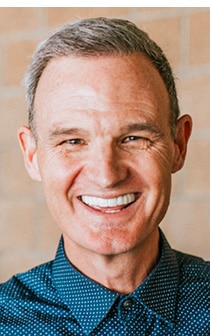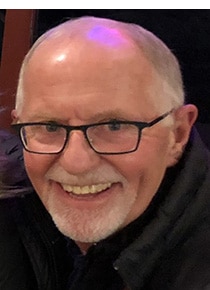By Chris Moon
Loneliness is a perpetual problem among pastors, and it only has intensified during the COVID-19 pandemic, according to two experts who specialize in care for pastors.
“I don’t know of a single pastor whose life has not been put into the crisis continuum on some level [by the pandemic],” said Dr. Wes Beavis, a clinical psychologist and longtime Restoration Movement pastor. “All of them have been personally affected by this.”
The pandemic and its fallout in the life and work of the church has added strain and uncertainty to the lives of ministers, revealing areas where they have not cultivated healthy habits.
And poor relational habits are chief among those.
If pastors were lonely before the pandemic, they are even more so now in this age of virtual meetings and smaller in-person congregations, said Alan Ahlgrim, who leads a ministry that connects pastors to one another in “covenant groups.”
“It exacerbates it,” he said of the pandemic
The solution is finding ways to build meaningful relationships. After all, it’s not good for humans to be alone (Genesis 2:18).
“Isolation is soul-suffocating,” Ahlgrim said.
THE LONELY PASTOR
Many pastors experience loneliness, and a myriad of factors prop up this phenomenon, said Beavis, author of the book Let’s Talk About Ministry Burnout: A Proven Research-based Approach to the Wellbeing of Pastors.
For instance, pastors sometimes shy away from making friends within their churches because of their unique position within the congregation. And if ministers do have friends, they may feel guilty spending time away from their families in order to be with them.
Or pastors may fall prey to the urge to make every gathering of friends into an evangelistic or discipleship activity. Then again, some pastors simply are too tired to build meaningful friendships after leading their teams and attending to the responsibilities that come with ministry.
“At the end of the day, they don’t have any emotional juice in the tank to use in building relationships,” Beavis said.
In his counseling practice, Beavis routinely asks pastors whether they have anyone who could come bail them out of a personal crisis in the middle of the night—and who would do it with a measure of grace.
“Very few pastors register high on that,” Beavis said.
But healthy relationships are critically important to a person’s well-being.
Ahlgrim said he recalled watching a reality TV series that put trained survivalists in isolated places where they had to survive on their own. The reason many quit the challenge had more to do with the isolation than the elements.
“They were unprepared for that,” and many pastors prove to be no different, even as they try to shepherd the souls of others, said Ahlgrim, the founding pastor of Rocky Mountain Christian Church in Niwot, Colo. Ahlgrim, who now leads Covenant Connections for Pastors, served with RMCC almost 30 years—until 2013.
“The isolated leader is the vulnerable leader,” Ahlgrim said. “Quality connections require intentionality and perseverance. We all know they are important. But pastors live in the land of the urgent. As a result, pastors are the ones who talk the most about community, but they enjoy it the least.”
THE ‘STRESS FRACTURE’
Enter the pandemic.
Many churches shut their doors for months and then reopened with a fraction of the in-person attendance they once had. Small groups no longer met in person. And virtual gatherings, for many, have proved a poor substitute.
In short, the pandemic likely only added to pastoral loneliness.
“It’s what I call a stress fracture,” Ahlgrim said.
He said he once had a stress fracture in his leg, and the doctors told him to stay off that leg. Ahlgrim didn’t. It resulted in a broken leg, he said.
Ministries with stress fractures—led by lonely ministers in a time that has been marked by additional isolation—are running toward trouble.
“It was the accumulation of stress,” Ahlgrim said. “I see what’s happening now in ministry-land, there are stress fractures that are happening far and wide. We are reaching a point of crisis in pastoral leadership because leaders are ill-prepared to live in this culture of uncertainty without community.”
Partly as a result of their loneliness, some pastors derive their sense of community and worth from standing in front of their congregations each week. People look up to ministers and see them as their leaders, Beavis said. There’s sometimes a sense of fandom involved.
“The pandemic kind of took away the platform,” Beavis said. “You take that away, and you substitute it with standing in front of a camera. Who would you much rather speak to—an empty room with a camera in front of you or a room full of people?”
BUILDING CONNECTION
The remedy, Beavis said, is for pastors to take time to invest in meaningful friendships.
Every pastor, he said, needs “somebody that knows you, knows you deeply, and is really familiar with what’s behind the curtain.”
“There’s not a pastor out there who does not need authentic friendships,” Beavis said.
Pastors need to give themselves permission to spend time building friendships outside of their families.
“This is a message, especially to guys, that friendship is something that God intends us to have,” Beavis said. “It is an antidote to loneliness. We need to give ourselves permission. It’s a spiritual thing to do. It’s not an evangelistic thing to do. It helps us to be emotionally healthy. God intends friendship to be part of the journey.”
Ahlgrim said he finds himself talking more these days to pastors about their spiritual, relational, and physical rhythms. The pandemic has altered those rhythms for many ministers.
For instance, one pastor told Ahlgrim he had stopped journaling at the beginning of COVID-19, hampering a once-healthy spiritual routine.
“Your rhythms are perfectly designed to get exactly what you are getting,” he said.
Ahlgrim advocates for pastors to join groups with other pastors with whom they can share their struggles. This should become a habit.
“If your rhythms are not healthy, you aren’t healthy,” Ahlgrim said. “This is not new for us.”
Chris Moon is a pastor and writer living in Redstone, Colorado.
_ _ _
ABOUT THE EXPERTS
Alan Ahlgrim is now leveraging the agony and ecstasy of 50 years of ministry. He retired from his role as founding pastor of Rocky Mountain Christian Church in Colorado, but he has not retired from active ministry. Ahlgrim now serves as the chief soul care officer of Covenant Connections for Pastors. He invests heavily in “the hard work of heart work,” helping other leaders serve well and finish well by connecting them in soul-enriching covenant groups. These small, in-depth communities are designed for soul care; the ministry is spreading beyond Colorado to include a national network of soul care groups meeting in various locations. Learn more at covenant-connections.org.
Dr. Wes Beavis has served as a pastor in Restoration Movement churches in both the United States and Australia. He is also a licensed clinical psychologist who specializes in helping ministry leaders navigate the leadership journey. He has clinical expertise in diagnosing and treating the symptoms of ministry burnout, depression, anxiety, and helping ministry leaders transform negative stress into positive stress. His latest book is Let’s Talk About Ministry Burnout: A Proven Research-based Approach to the Wellbeing of Pastors. Learn more at www.drwesbeavis.com. Contact him via text at (949) 246-7836.



Thank you for this article and information. Very helpful!